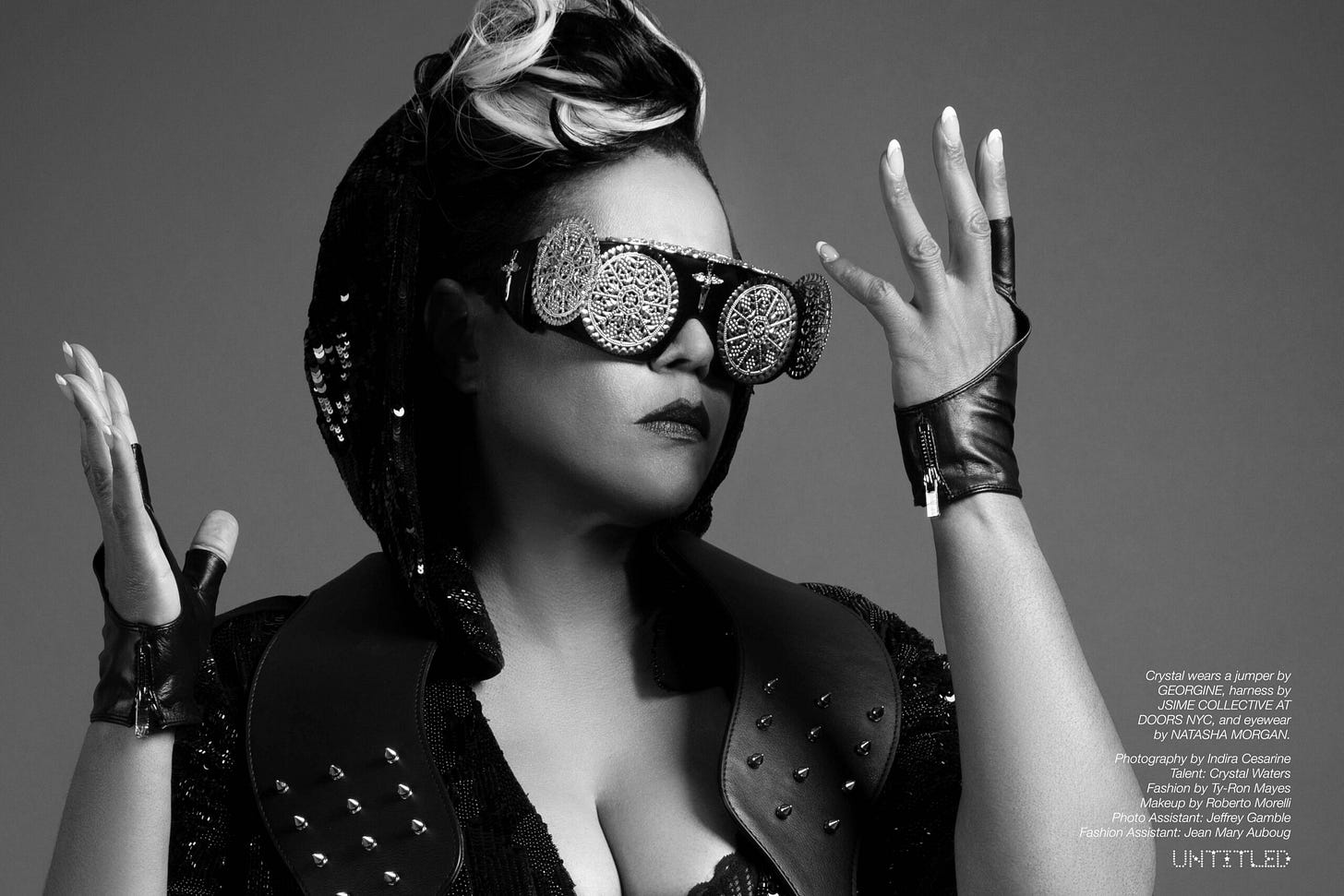30 Years of Pure Love: Crystal Waters and The Soul That Saved House Music
From "Gypsy Woman" to "100% Pure Love," the House Music pioneer crafted a flawless catalog of beats that still power the dancefloors of the world.
In the constantly shifting landscape of club music, where a track can be viral one week and forgotten the next, true longevity is the ultimate measure of an icon. For three decades, Crystal Waters has not just survived the cycles of house, dance, and pop—she has consistently defined them.
An artist with 12 #1 Billboard Dance Singles, 6 ASCAP Songwriter Awards, and an MTV VMA, Waters is a certified hitmaker; she is the indelible voice and pen behind anthems that have become the very fabric of global nightlife. As house music experiences yet another renaissance, the irresistible beat and sharp storytelling of Crystal Waters are more vital than ever, proving that her reign is 100% Pure Love—and absolutely relentless.
Waters’ entry into the music scene in the early 90s was explosive and unconventional. She arrived not as a diva seeking a beat, but as a poet and songwriter who could infuse deep, resonant social commentary into a four-on-the-floor groove.
“Gypsy Woman (She’s Homeless)” (1991) is the cornerstone. The one that introduced the world to the hypnotic power of Waters’ voice and the legendary production of The Basement Boys. The track, famous for its deceptively simple “La da dee, la da da” refrain, was a Trojan horse of consciousness.
“She wakes up early every morning / Just to do her hair / Because she cares, y’all”
The iconic lyric described a homeless woman Waters observed in D.C. who maintained her dignity despite her circumstances. It was a masterpiece of contradiction: a buoyant, worldwide club smash built on a foundation of empathy and grit. It forced the mainstream to dance to a song about social reality, and its cultural weight remains undeniable.
Waters cemented her superstar status with “100% Pure Love” in 1994. This track from her sophomore album, Storyteller, was pure, unadulterated euphoria. Spending an astonishing 48 weeks on the Billboard Hot 100, its joyful, galloping beat and instantly recognizable synths turned it into a fixture of the 90s and a staple of Pride celebrations and dance-offs worldwide. Its recent resurgence, driven by new generations discovering its power via social media, proves that pure, unpretentious joy never fades.
To only talk about the hits is to miss the true depth of Waters’ contribution. Her albums, Surprise (1991), Storyteller (1994), and Crystal Waters (1997), are filled with tracks that showcase her versatility as a vocalist and writer—songs that veteran DJs still use to control the temperature of a true house music crowd.
“Makin’ Happy”, originally Waters’ first single, immediately established her place in the burgeoning US House scene. It’s a pulsating, soulful declaration that is pure, uplifting house music—a celebratory cut perfect for the heart of any late-night set.
“Ghetto Day” is an underrated gem from Storyteller. This mellow, R&B-infused groover showcases Waters’ soulful texture outside of the high-energy club domain. It’s a testament to her versatility, proving she could transition seamlessly from the dancefloor to the radio’s “quiet storm” hour.
“What I Need”, while a minor single in the US, is highly regarded in the house community. It blends a deep, thumping groove with a powerful vocal performance, delivering the kind of authentic, classic deep house sound that influenced countless artists who followed.
Crystal Waters’ impact is a story of Black woman genius at the intersection of pop and underground culture. She proved that a Black female artist could be a dominant force in the global dance arena without compromising her unique voice or her social perspective. Her tracks, whether the global smash “Destination Calabria” (with Alex Gaudino) or the sleek groove of “Say... If You Feel Alright,” have a common thread: an immediately catchy, syncopated rhythm paired with a voice that is utterly distinct and instantly uplifting.
Today, in a world where DJs are constantly searching for the perfect nostalgic moment to drop, Crystal Waters’ discography remains a cheat code. Her songs don’t just prompt dancing; they provide a moment of shared, intergenerational catharsis. When you hear that iconic bassline and the “La da dee, la da da,” you know, without question, that you are in the presence of an icon.
Her music is a testament that the beat doesn’t just drop—it lives.



